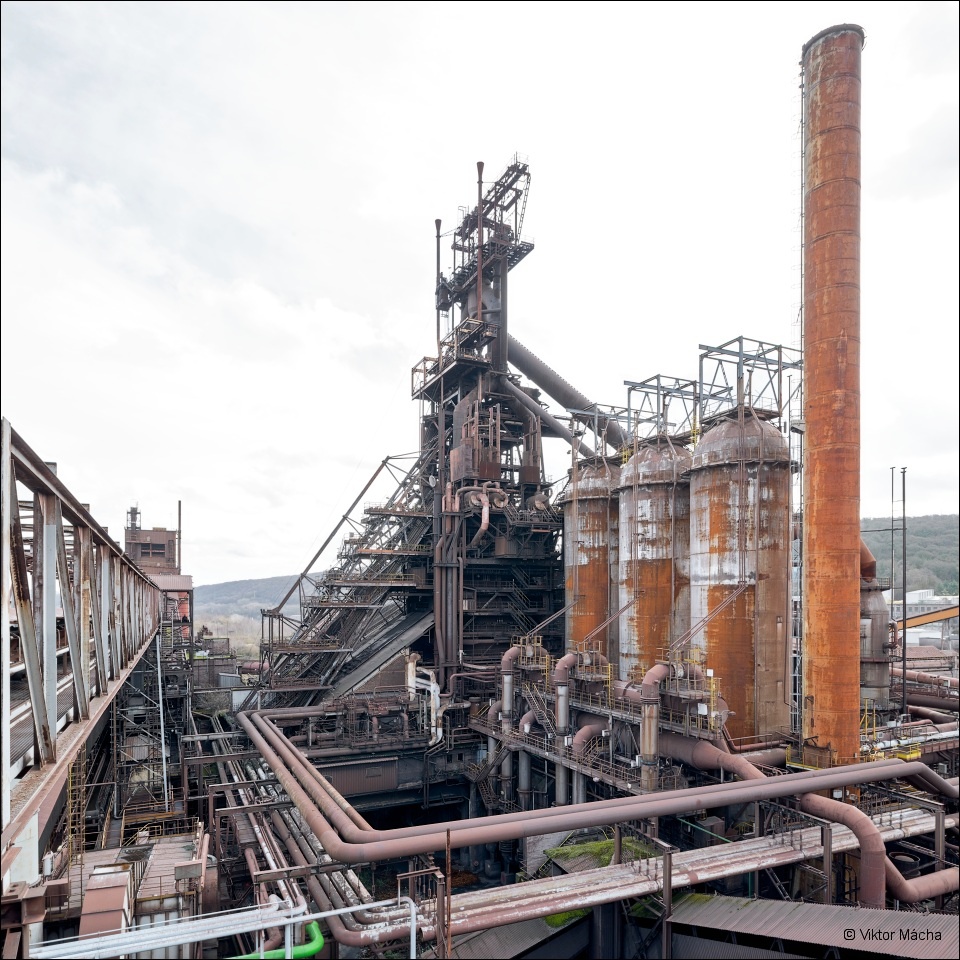
Cockerill-Sambre Ougrée, HFB
Ougrée together with other towns lying along the river Meuse is considered as one of the cradles of European industrial revolution. The rise of heavy industry was initiated by British entrepreneur John Cockerill, who built the first iron ore smelter in 1817 already. After his death in 1840 the plant was nationalized and continued to grow under the name "Société anonyme John Cockerill".
In 1955 the works were merged with neighbouring plant in Seraing and soon formed into an integrated plant "Cockerill-Ougrée" with more than 45.000 workers.
In 1962 the blast furnace "B" was constructed by Paul Wurth company.
By the 90´s the owners of the plant were changing rapidly. First a new company "Cockerill-Ougrée-Providence et Espérance Longdoz" was established, later overtaken by ARBED and Usinor and finally merged with ArcelorMittal in 2010.
The mill was not doing well though. Several restarts and mothballing lead into definite shutdown in 2011,
The blast furnace is abandoned now and known among the urbex community as the famous HFB.
Keywords: cockerill sambre, ougree, haut fourneau, HFB, urban exploration, urbex, belgium, acierie, steelworks, ironworks, blast furnace, hochofen, stahlwerk, hochofenwerk, hochofenanlage, hüttenwerk, vysoká pec, opuštěná železárna, industriální fotografie, industrial photography, 2017
Views: 3983 ×